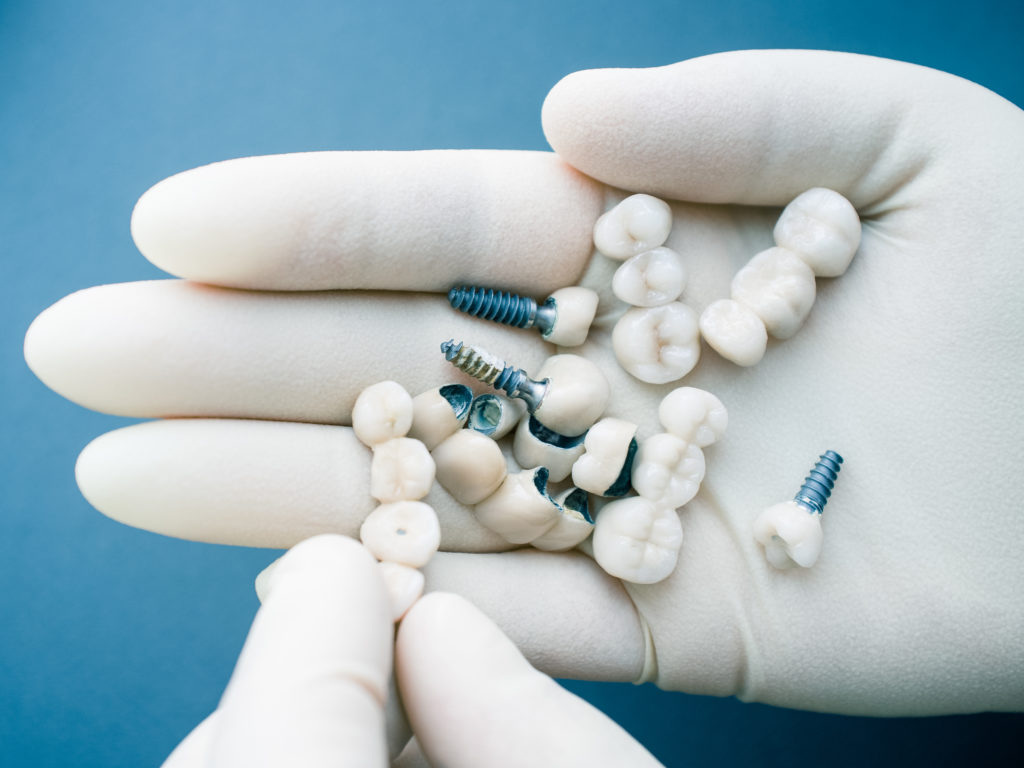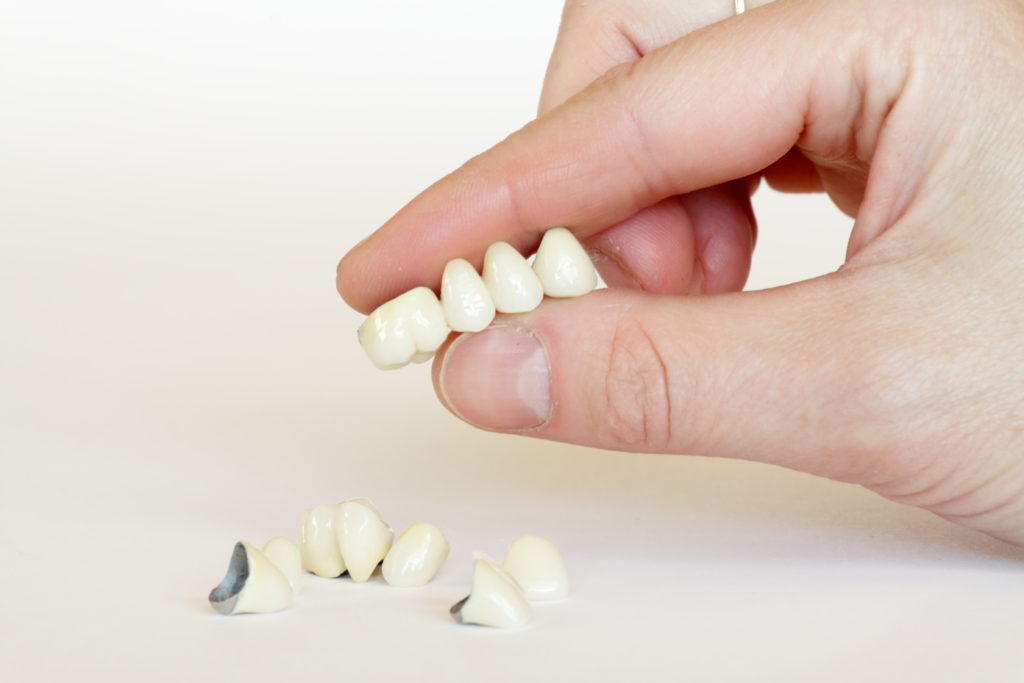If you have missing or damaged teeth, you may find yourself wondering what your options are. Luckily, you don’t have to live with gaps in your mouth. There are several dental options available to you that can function to replace missing or damaged teeth. These serve not only to improve your smile and your confidence in your mouth, but also with how well you can chew and talk and your overall oral health. Some of the replacement teeth options for you include implants and bridges.
Implants Vs Bridges: What You Need To Know
When considering implants vs bridges, you may wonder about what the differences are, how they’re similar, and which one is best for you and your needs. They’re meant to replace a tooth, after all, you want to be educated about which one is better suited to you. Here’s what you need to know about implants vs bridges.
What Is An Implant?

Implants replace missing or damaged teeth with artificial teeth with screws that go into your jawbone which function as a tooth root. Implants act as a complete replacement to a tooth, with not just a fake tooth, but also an artificial root that fuses with your jaw overtime.
Types Of Implants
There are several different types of implants for a variety of needs.
- Full mouth. Full mouth implants are for if you need to replace all of your teeth.
- Single tooth. If you only have one tooth that is missing, a single tooth implant will replace it for you.
- Partial. If you have a bridge that failed or any other condition that affects part of your teeth, partial implants will help.
- Bone Grafting. Sometimes, before getting implants, the jaw may need grafts in order to strengthen it.
Benefits Of Implants
Done right, implants can last your entire life. They also keep your jawbone strong, and look and act just like normal teeth. They may be artificial teeth, but they still need to be cared for like your regular teeth, with proper brushing, flossing, and routine dental check-ups.
What Are Bridges?
A dental bridge is made of crowns on either side of the missing tooth or of an artificial tooth. They don’t replace a missing tooth, but they do fill a gap. These are often used in cases of multiple missing teeth.
Types Of Bridges
As with implants, there are several kinds of bridges.

- Fixed Bridge. This has two or more crowns around an artificial tooth.
- Cantilever Bridge. This connects to one tooth.
- Resin-Bonded Dental Bridge. This is often used for front teeth, and fuses to existing teeth.
- Implant-Supported Bridge. This is like a fixed bridge, but anchors to implants instead of real teeth.
Benefits Of Bridges
Bridges tend to be a less invasive process than implants, function just like your normal teeth, and look natural too.
How Are They Similar?
Implants and bridges are similar in that they both replace missing teeth. They are both made to look like your normal teeth, keep your mouth strong, and help your overall oral health through replacing missing teeth. The gaps missing teeth create can cause health problems such as TMJ disorder and affecting the stability of your other teeth. Implants and bridges help with that.
Implants Vs Bridges: The Differences
Key differences with implants vs bridges are with how they are installed, their longevity, and their cost.
Installation
The installation process for implants vs bridges is quite different.
Implants
The process of getting implants is usually more time-intensive, because it involves replacing not just a tooth, but the root of it too. Getting an implant usually requires a few visits, from removing a damaged tooth, to doing any necessary grafting, to actually placing the implant in, to then finally putting on the fake tooth.
Over time, the screw of the implant that goes into your jawbone, replacing the root, fuses with it, in a process called osseointegration. This takes a few months, and the bone-healing process is what causes implants to take longer.
Bridges
Since bridges are reliant on being anchored to the teeth around the problem area, getting a bridge involves shaving down the teeth on either side of the area, so that the crown can have room and something to attach to.
They usually only require two visits to your dentist; the first, so that they can shave your teeth and make impressions of them, putting on a temporary bridge, the second so that they can install the permanent bridge.
Longevity
While both implants and bridges are made to last, they don’t last the same amount of time. Implants are made to last for the rest of your life, while bridges usually need to be replaced every 10-15 years.
Costs
Because implants are a more intensive process, they cost more upfront than bridges tend to. However, since bridges need to be replaced repeatedly over the course of your lifetime, implants actually end up being more cost-effective in the long run.
Which One Is For You?

When deciding between implants vs bridges, you may weigh their pros and cons. Implants are a surgical procedure that takes months, but they can last your life and work like a real tooth, and don’t need much more maintenance than a normal tooth. Bridges don’t supplement a tooth root, so they affect your jawbone’s health, and also leave teeth more vulnerable to decay, and need to be replaced. But they are less invasive and less expensive than implants.
Ultimately, you should talk with your dentist about your options. Many dentists recommend implants, because they do work as a real tooth and don’t pose the potential problems or require replacement like bridges do.
Got Questions About Implants Vs Bridges?
Here at Gunnell Family Dentistry, we want you to feel comfortable in your smile and to have good oral health. We offer implants, and are happy to answer any questions you may have. We also offer a number of other dental services. For questions or to make an appointment, please contact us at Gunnell Family Dentistry today!







Leave a Reply